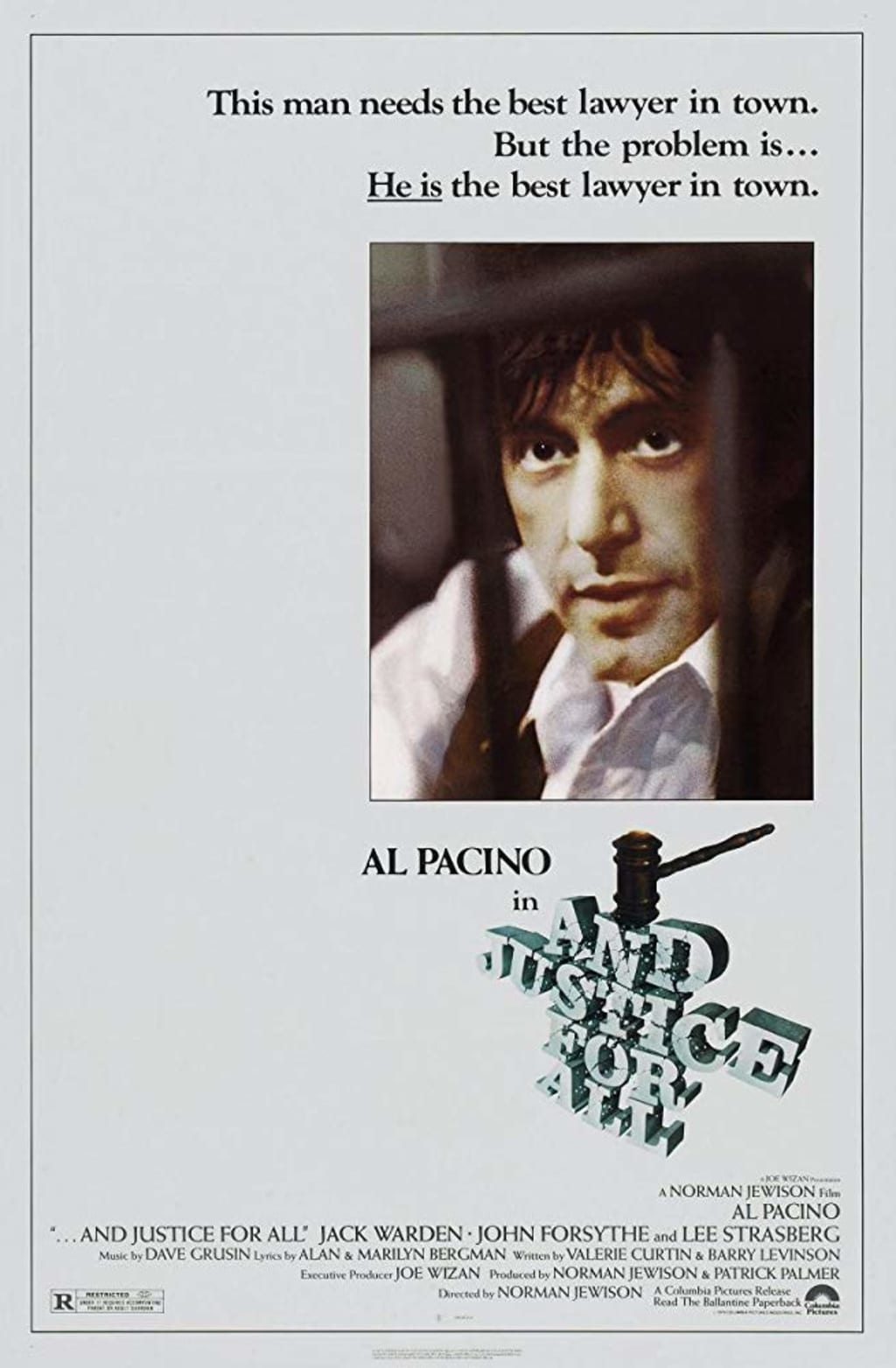Al Pacino Makes Us Believe in and Justice for All
Unfortunately, the system just doesn't work that way.

1979's And Justice for All stars Al Pacino as an honest lawyer. In a profession where oath and ambition insulates judges, prosecutors, and attorneys from doing what's right, I hope after all my Star Trek commentary that the world is OK with more science fiction.
Hey, we're talking Al Pacino. His Oscar nominated performance relegates this legal dissertation into a fiction that makes us want to believe. This even if it could never really happen, but that’s why we go to the movies.
It follows that the film begins with “Arthur” in city lockup because he’s just taken a swing at Judge Henry Fleming (John Forsythe). The set up derives from a young man trapped in legal limbo and actual prison as a result of mistaken identity. Judge Fleming holds the key to the boy’s release, and all that matters to Fleming is Arthur was three days late in filing the exonerating evidence.
The oversight prevails because the judge has his own ideas about the punishment fitting the crime and innocent until proven guilty. “Maybe punishment should be worse than the crime, and the innocent need to go to jail sometimes," the law and order justice lectures Pacino.
A System in Need of Psychoanalysis
But the megalomania that follows isn’t solely confined to Fleming. Prosecutors pursuing political gain at the expense of the truth, lawyers concerned only with their bottom lines and judges so disconnected from the humanity that they are supposed to uphold that they lump everyone together. This is all done against the backdrop of a commission spinning its wheels to look like they're doing something about the myriad of problems.
In other words, the American Justice System, and with the duplicity indigenous to the law, we get the chance to explore a factor that we unilaterally overlook. The mental illness that likely pervades the system.
Jack Warden plays a suicidal judge who flirts with death by sitting on the ledge of the NYC courthouse and regularly flies his helicopter past the half-way point of his fuel reserves. Crashing short of the helipad into the shallows of the Hudson, Warden rationalizes the near miss for Arthur. “Doesn’t it make you feel alive?”
But Jay, played by Jeffrey Tambor, is the friend that goes over the edge. Mounting a brilliant defense for a violent criminal, Jay loses it when the felon goes out and murders two children. Exhibiting a series of bizarre behaviors, Jay is hauled away.
Power is still the real problem.
Still, it’s Judge Fleming that really carries the mental illness load. Fleming's hatred of “these animals” is a projection of his own depraved tendencies. Raping and beating a young woman, his psychosis doesn’t put limits on his duplicity. Given Arthur’s reputation for honesty and dislike of Fleming, the judge reasons that Arthur makes the perfect defense attorney.
Arthur would only defend Fleming if he was innocent and Pacino accepts because the judge holds the cards to the wrongly imprisoned youth. But when the young man is murdered in prison, the judge loses his leverage. Pacino then finds evidence of the judge’s guilt, and Arthur is seemingly off the hook. That’s until Fleming draws upon his immense connections to have Arthur disbarred.
Forced into the courtroom, Pacino complies—even in the face of Fleming's arrogance. “You know I wouldn’t mind seeing her again,” he tells Pacino in court.
Brought to this crescendo, you want it bad—the judge and the entire system on a platter. Bound by attorney-client privilege and all the forces against him, Arthur has no choice. But remember, this is why we go to the movies and Al Pacino gives us something to believe—even if it could never really happen.
Please like My Movie Review page.
Author can be reached at [email protected]
About the Creator
Rich Monetti
I am, I write.






Comments
There are no comments for this story
Be the first to respond and start the conversation.